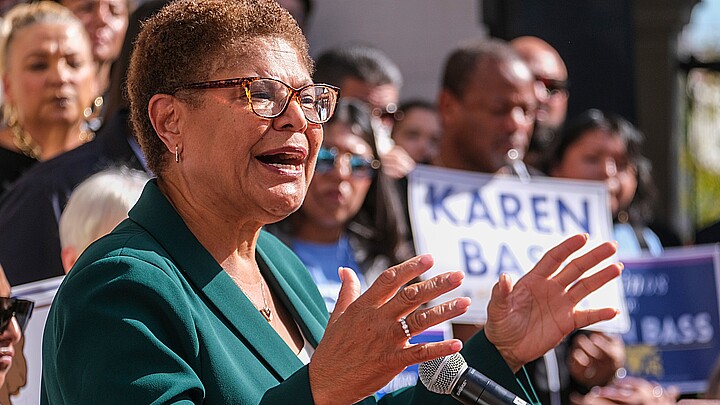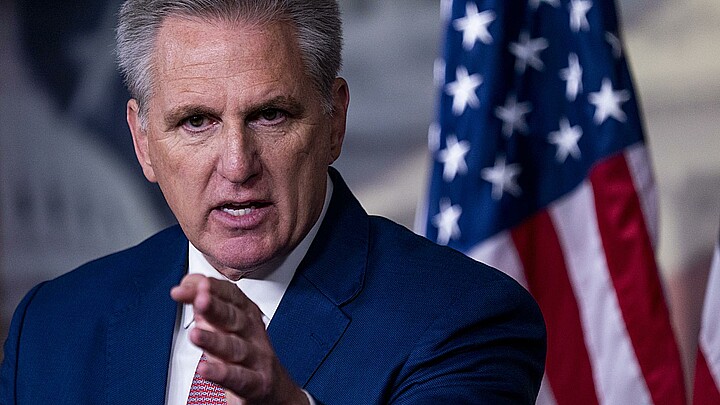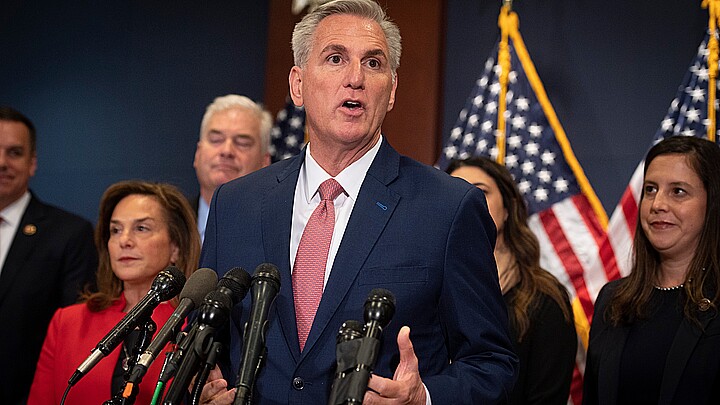Politics
Sen. Dianne Feinstein dies at 90 leaving prized California senate seat open
California Gov. Gavin Newsom has said he is considering appointing a replacement, but has stressed the appointment would merely be a temporary situation until the upcoming election

September 29, 2023 9:10am
Updated: September 29, 2023 9:59am
Longtime U.S. Sen. Dianne Feinstein, who became an inspiration to female politicians in California died, according to reports published at 9 a.m. Friday morning.
The Wall Street Journal reported that the California senator’s death was confirmed by a person familiar with the matter.
The veteran senator represented the Golden State in the U.S. Senate for more than 30 years, serving her terms mostly in the realms of intelligence and judiciary matters. She was responsible for pioneering the CIA’s use of enhanced interrogation techniques after the 2001 Sept. 11 attacks in New York and also leading legislation on assault weapon bans.
She was instrumental in the confirmation of several Supreme Court Justices.
At 90 years old, Feinstein was the oldest member of the U.S. Senate and California’s longest serving senator in the state’s history.
The longtime California Democrat was struggling with health issues the past several months and was reportedly planning to retire at the end of her term this year.
California Gov. Gavin Newsom has said he is considering appointing a replacement, but has stressed the appointment would merely be a temporary situation until the upcoming election.
Feinstein was known largely for breaking the glass ceiling among female politicians.
After the 1978 era assassinations of San Francisco City Supervisor Harvey Milk and Mayor George Moscone, Feinstein was elected as the city’s first female mayor.
She served for a decade and renovated the city’s cable car system, a notable part of her legacy.
In 1992, the former San Francisco mayor was elected to the U.S. Senate during a special election held to replace Pete Wilson, who previously defeated Feinstein in a race for the governor’s mansion two years earlier.
Feinstein soon became first woman to represent California in the Senate, followed by Sen. Barbara Boxer who also won a Senate seat that same year.
Her election marked a 142 year gap for a woman to serve in the Senate on behalf of California since its first senator, Republican Party founder John C. Frémont was elected to the chamber in 1850.
Once in the Senate, Feinstein pushed the famous and highly controversial 1994 federal assault-weapons ban, which banned the sale, import or manufacturing and of military-style assault weapons.
That legislation was inspired after an eruption of California shootings. The legislation came five years before Eric Harris and Dylan Klebold used a TEC-9 and shotguns to kill 12 of their classmates and one teacher.
The TEC-9 has commonly been commonly identified as the “assault weapon of choice for criminals.” Despite the rise in school shootings and other mass shootings that followed, Feinstein’s hallmark legislation expired in 2004.
“Subsequent studies of the decade during the ban have found it had a minimal impact on decreasing mass shootings but it has remained a priority of Democrats,” the Wall Street Journal reported in Feinstein’s Sept. 29 obituary.
Feinstein was also a hawk who supported President George W. Bush’s push for authorization to use military force in 2002 against Saddam Hussein’s regime in Iraq.
She was ironically also part of the 2004 investigation that found failures in the intelligence-gathering and analysis process that led to the authorization.
As one of her most notable accomplishments, the California senator was a key member of the government’s six-year review of the CIA’s enhanced interrogation program.
That investigation probed the CIA’s use of waterboarding and sleep deprivation against detainees who were taken into U.S. custody during the global war on terror.
In 2009, Feinstein was appointed as the first woman to head the Senate Select Committee on Intelligence, where she reigned as chairwoman for six years.
Five years later in 2014, the Intelligence Committee released a report, and in which Feinstein called the CIA’s enhanced interrogation tactics a “stain on our values and on our history.”
Congress soon passed legislation banning the use of such techniques, a watershed moment in which the legislative branch dictated tactical limits to the U.S. intelligence community.
Feinstein was also the first woman to serve on the Judiciary Committee, and later played an important role in the confirmation then-nominee Brett Kavanaugh for the Supreme Court in 2018.
It was later learned the California senator had received and held back a letter from Dr. Christine Blasey Ford, making accusations against Kavanaugh for sexual assault back in college.
Kavanaugh was later confirmed in October that year, and Feinstein was re-elected in the Golden State in 2018. She later received some criticism from Democrats for her diplomacy with Republicans during the confirmation hearing of Justice Amy Coney Barrett.
She handily won re-election as a statewide Democrat in California, though she first entered the Senate more as a centrist and was pushed to the left during her time in office.
Under pressure from Senate Majority Leader Chuck Schumer of New York, Feinstein relinquished her position as chair of the Judiciary Committee, but was called a “legend’ by former House Speaker Nancy Pelosi who called her “a titan in the United States Senate, with a record that stands among the finest in history.”










